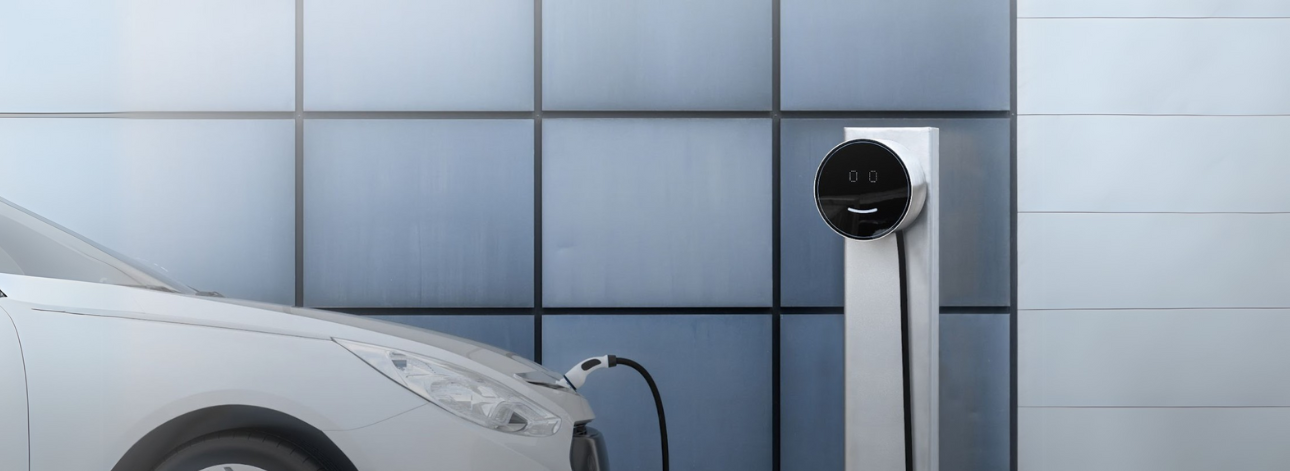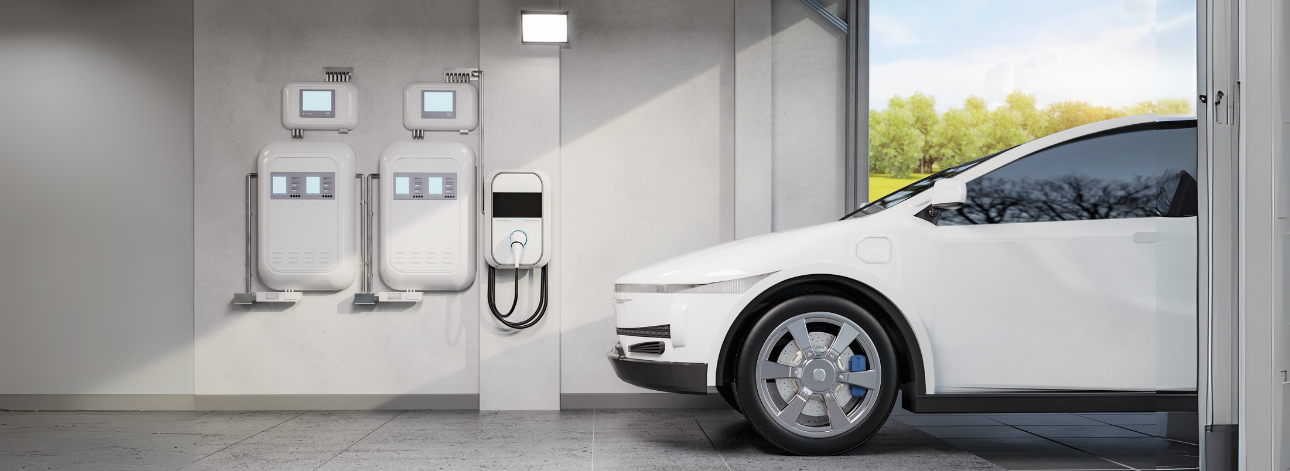How much does it cost to charge an electric car? Facts and numbers.
How Much Does It Cost to Charge an Electric Car?
The widespread adoption of electric cars has raised new questions for drivers and industry stakeholders. One of the most common questions is how much does it cost to charge an electric car and how this affects the overall cost-effectiveness of owning and using one. In this article, we will take a detailed look at the consumption and charging costs of electric vehicles, paying special attention to the perspectives of installation companies, fleet operators, and home or workplace charging options.
We’ll explore how much energy electric cars consume over 100 kilometers, the factors influencing charging costs, and when it makes sense to install a personal charging station. At the end of the article, we’ll also discuss payback periods, providing a full picture of the long-term benefits and potential limitations.
The Cost-Effectiveness of Electric Cars
The operating costs of electric cars differ significantly from those of traditional internal combustion engine vehicles. Lower energy prices and reduced maintenance needs make electric cars appealing to both individuals and businesses. However, cost-effectiveness is influenced by several factors, including the cost of the energy source, the vehicle’s efficiency, and the expenses associated with charging infrastructure.
Why Is It Important for Installation Companies and Fleet Operators to Understand Electric Car Consumption Costs?
For installation companies and fleet operators, understanding the cost-effectiveness of electric cars is critical. An increasing number of companies are transitioning to electric fleets to reduce operational expenses and meet sustainability goals. The lower fuel costs of electric vehicles, along with reduced maintenance expenses, can result in significant savings over the long term.
For such businesses, it is essential to comprehend charging costs and energy consumption to optimize infrastructure and accurately estimate how much it costs to charge an electric car. For example, a well-designed workplace charging system can substantially lower fleet operating costs while also enhancing employee satisfaction.

How Much Energy Does an Electric Car Consume per 100 km?
The energy consumption of electric cars depends on several factors, including the vehicle’s size, weight, aerodynamics, weather conditions, and driving style. On average, electric cars consume between 15 and 20 kWh per 100 kilometers. For simplicity, we’ll use an average consumption of 15 kWh per 100 kilometers in the following examples.
Measuring and Calculating Electric Car Consumption
The consumption of electric cars is measured in kilowatt-hours (kWh) per 100 kilometers. For instance, if a car uses 15 kWh of energy over 100 kilometers and the price of electricity is 36.9 HUF/kWh (reduced rate), the cost can be calculated as follows:
- Consumption: 15 kWh / 100 km
- Price: 36.9 HUF / kWh
- Cost per 100 km: 15 kWh × 36.9 HUF/kWh = 553.5 HUF
It is important to note that the reduced electricity rate applies up to a monthly consumption of 210 kWh. Beyond this, the price rises to 70 HUF/kWh, significantly increasing charging costs:
Cost at higher rate (per 100 km): 15 kWh × 70 HUF/kWh = 1,050 HUF
Examples of Consumption for Different Models
Here are the actual consumption figures for some popular electric car models:
- Hyundai Ioniq Electric: 15.5 kWh / 100 km
- Volkswagen e-Up: 16.0 kWh / 100 km
- Tesla Model 3 Standard Range Plus: 14.0 kWh / 100 km
- Renault Zoe R135 ZE 50: 17.2 kWh / 100 km
- Nissan Leaf (40 kWh): 18.5 kWh / 100 km
Charging Costs: How Much Does 1 kWh Cost?
The cost of charging an electric car depends on several factors, including the price of electricity, the charging location, and the tariffs of the specific charging station. Below, we detail the key considerations.
Public Charging Tariffs and Their Variations
In Hungary, public charging prices typically range between 120 and 300 HUF/kWh. Prices vary significantly depending on the type of charging technology:
- AC Charging: Cheaper but slower.
- DC Charging: More expensive but offers faster charging.
In recent years, public charging tariffs in Hungary have risen significantly. This trend is driven by fluctuations in energy market prices, the expansion costs of charging networks, and rising operational fees. This increase is particularly evident at charging stations offering faster DC charging, where the convenience of the service is reflected in higher costs.
Charging Electric Cars with Daytime vs. Nighttime Electricity
In Hungary, the previous nighttime electricity tariff is no longer available to residential customers in its original form. However, customers can opt for the so-called A2 tariff, which divides the day into two periods: lower prices from 11 PM to 7 AM, and higher prices during daytime hours compared to the standard A1 tariff.
The A2 tariff may be cost-effective if at least 75% of the household's energy consumption occurs during the cheaper nighttime period. Later in the article, we will also explain the costs of charging an electric car at home and the options available for optimizing costs.
Charging from a Solar Power System
For households with solar power systems, charging an electric car can be the most cost-effective solution in the long term. Smart chargers can automatically align the charging process with the peak production times of the solar panels, maximizing solar energy utilization for charging.
If the system is supplemented with energy storage, the energy generated during the day can be stored and used to charge the car at night.

Arguments in Favor of Installing a Personal EV Charger
Installing a personal EV charger offers numerous benefits for both individuals and businesses. Below, we highlight the key arguments supporting the development of private charging infrastructure.
Advantages of Workplace Installation: Employee Loyalty and Cost Savings
For businesses, installing a personal electric car charger is not only a cost-effective solution but also a significant competitive advantage. Providing workplace charging options can increase employee loyalty and satisfaction, especially among those who already own electric cars or plan to purchase one.
Installing chargers can reduce fuel costs for company fleets while also strengthening the company’s sustainability efforts. Moreover, private charging infrastructure offers a more flexible and cost-efficient alternative to using public charging stations, especially in the long term.
An additional advantage is that working hours typically coincide with daylight hours when the company’s solar system can generate maximum output. If workplace chargers are directly connected to the solar system, employees’ cars can even be fully charged for free using renewable daytime energy. This not only reduces costs for the company but also significantly contributes to achieving sustainability goals.
When Is Installing a Personal EV Charger Not Recommended?
While installing a personal EV charger offers many advantages, there are specific situations where it may not be the best solution. Below, we outline cases where alternative options might be more suitable.
Special Circumstances That Influence the Decision
Limited Electricity Capacity: If the location lacks sufficient electricity capacity, installing a charger may involve significant costs for infrastructure upgrades. In such cases, relying on public charging stations may be a more economical solution.
Low Charging Demand: If the use of the electric car is infrequent, for example, limited to occasional trips, it may be more practical to rely on existing public or community charging stations rather than installing a personal charger.
Lack of Solar Panels and Energy Storage: If the location does not have a solar power system and energy is exclusively sourced from the grid, charging costs could be higher, especially under overconsumption tariffs. In such cases, introducing renewable energy sources may be advisable before installing a charger.
Limited Space: If there is no suitable area for installation or parking access to chargers cannot be ensured, private infrastructure may not be viable.
Short-Term Plans: If the business or household plans to use electric cars only in the short term, the return on investment may be uncertain. In such situations, it might be better to opt for temporary rental or community charging services.
The Payback Period for Installing an EV Charger
Installing a personal EV charger can result in significant savings over the long term for both individuals and businesses. However, the return on investment depends on several factors, including daily usage frequency, charging needs, and installation costs.
Short- and Long-Term Cost Benefits
In the short term, a personal EV charger can help avoid the higher tariffs of public charging stations, especially when the system is integrated with renewable energy sources like solar panels. This minimizes daily charging costs and reduces the overall expense of charging an electric car.
In the long term, the investment can offer significant financial benefits, as maintaining a personal charging infrastructure is considerably cheaper than relying on public chargers. Additionally, the operating costs of electric cars—such as maintenance and energy—are inherently lower compared to internal combustion engine vehicles, further increasing potential savings.
Typical Payback Periods
Explanation of Calculations:
- Home Charging from the Grid:
- The first 1,500 kWh of consumption is priced at 36.9 HUF/kWh (subsidized rate).
- The additional 1,237.5 kWh consumption is priced at 70 HUF/kWh (market rate).
- Home Charging with Solar Panels:
- To generate this energy demand even during winter, approximately a 10 kW solar panel system is required.
- The total energy demand for charging is covered entirely by energy generated by the solar system, resulting in a cost of 0 HUF
- Workplace Charging from Solar Panels:
- The workplace system operates with solar panels and at maximum utilization, making the cost of charging 0 HUF.
Important Note:
The calculations presented here are for informational purposes only, and the actual payback period may vary significantly depending on individual circumstances. Installation and charging costs, vehicle usage habits, as well as energy consumption and pricing, all have a substantial impact on the final results. For personalized calculations, it is recommended to seek expert advice.
Summary
The charging costs and economic considerations of electric cars can vary significantly depending on individual needs and circumstances. Home charging offers a cost-effective solution, especially when combined with solar panel systems, while public charging stations provide convenience through their speed and availability, albeit at higher costs. Workplace charging systems, particularly when integrated with solar panels, can be an ideal solution for fleet operators and businesses, allowing them to reduce costs while enhancing sustainability.
However, the installation of charging infrastructure and its payback period require careful planning and calculations. Individual energy consumption habits, installation costs, and energy prices all influence the cost-effectiveness. Therefore, it is advisable to consult experts to find a tailored, long-term sustainable solution that meets your specific needs.


